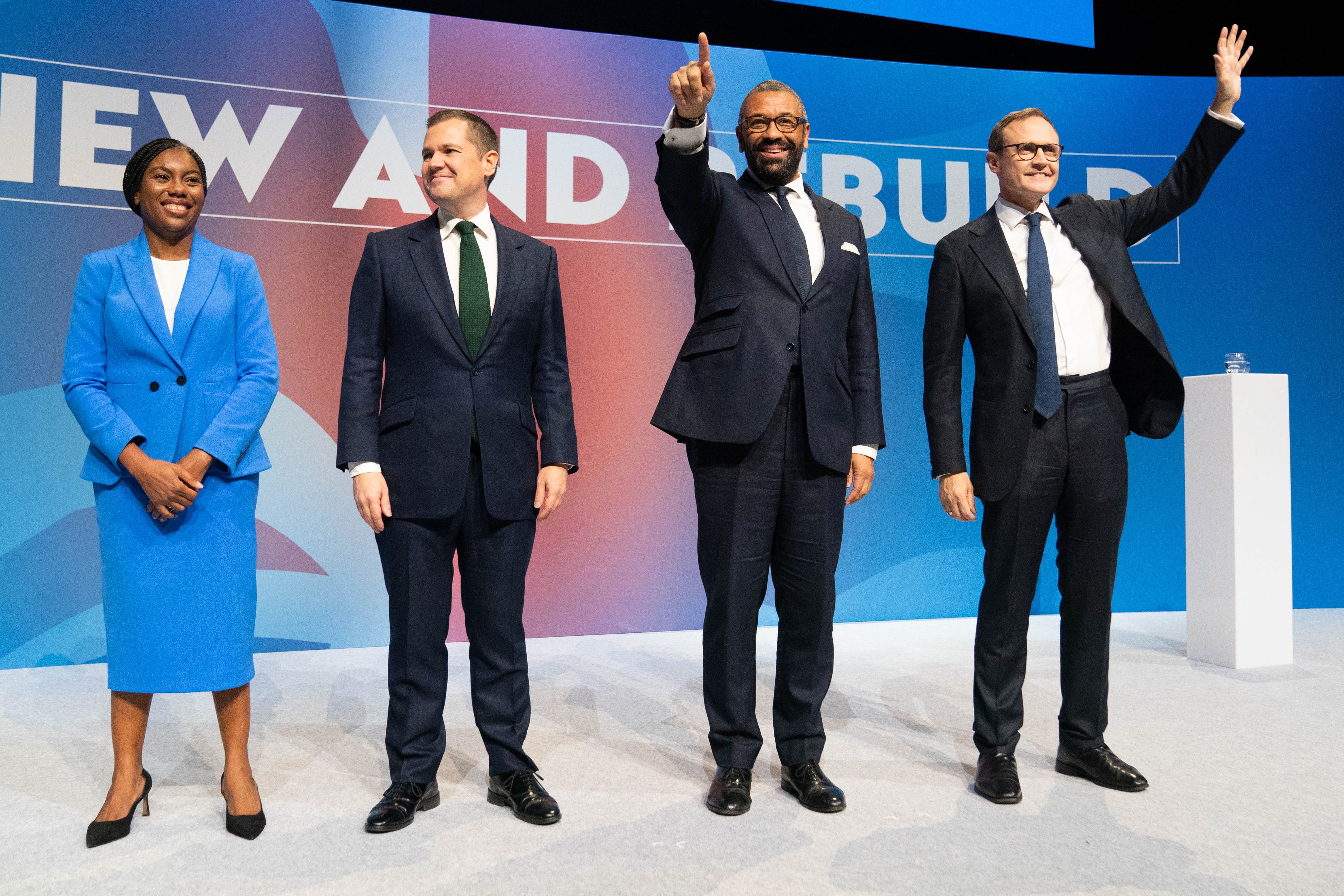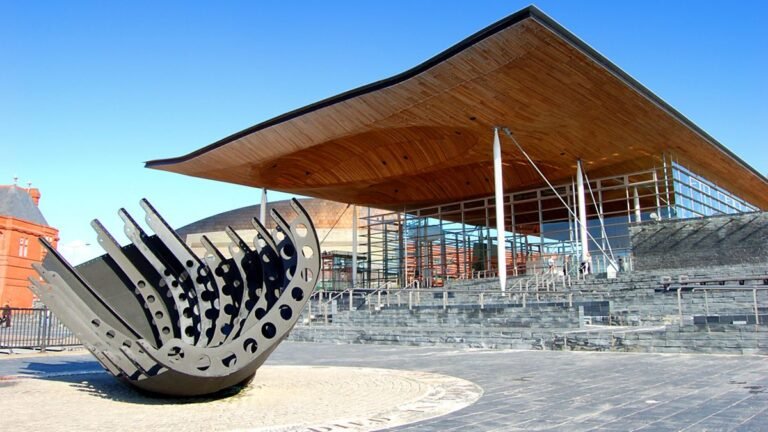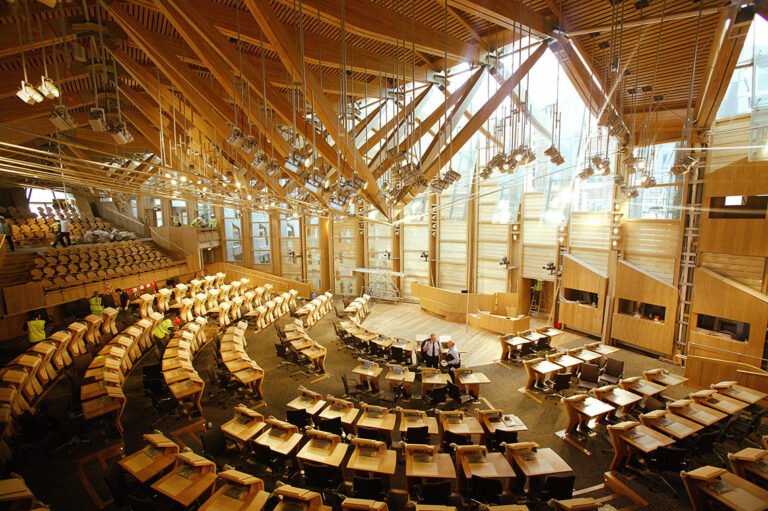The Conservative Party holds a significant place in British politics. With a rich history, it influences policies and governance in the UK.
Founded in the 19th century, the Conservative Party has evolved over time. It champions free markets, individual liberties, and traditional values. Known for its pragmatic approach, the party adapts to changing political landscapes. From Winston Churchill to Margaret Thatcher, its leaders have shaped national and global events.
The party attracts diverse supporters, including business leaders and working-class citizens. Understanding its principles helps grasp the UK’s political dynamics. This exploration of the Conservative Party offers insights into its core beliefs and impact. Dive into its journey to learn how it has shaped Britain’s past and continues to influence its future.
Historical Roots
The Conservative Party is a significant political force in the UK. Its historical roots offer insight into its long-standing influence and development. Understanding its origins and key milestones reveals the evolution of conservative politics.
Origins And Formation
The Conservative Party traces its beginnings to the late 17th century. It emerged from the Tory faction, which supported the monarchy and traditional institutions. The Tories were strong advocates for hierarchy and order.
By the 1830s, the Tory Party evolved into the Conservative Party. This transition marked a strategic shift toward broader representation. The party started to include more middle-class members and interests.
Key Historical Milestones
In 1846, the repeal of the Corn Laws was a pivotal moment. It caused a split within the party. This division led to a new era focused on free trade.
The party gained power under leaders like Benjamin Disraeli in the 19th century. Disraeli promoted social reforms and expanded British imperialism.
In the 20th century, the party faced challenges during the world wars. Winston Churchill became a defining figure with his wartime leadership.
Margaret Thatcher’s leadership in the 1980s marked another milestone. Her policies of deregulation and privatization reshaped the UK economy.
These historical milestones highlight the party’s adaptability and resilience. The Conservative Party continues to play a crucial role in British politics today.
Foundational Principles
Rooted in tradition, the Conservative Party focuses on individual responsibility and free market principles. Its foundational beliefs emphasize limited government intervention and strong national defense. The party champions preserving cultural heritage and promoting economic growth through private enterprise.
The Conservative Party, known for its deep-rooted history and influence in British politics, stands on a bedrock of foundational principles. These principles guide their policies, shape their strategies, and define their identity. Understanding these core values is essential for anyone looking to grasp the essence of conservatism.
Core Beliefs And Ideologies
At the heart of the Conservative Party’s foundational principles is a strong belief in individual responsibility. This ideology emphasizes personal accountability and the power of individuals to shape their own destinies. It suggests that you have the potential to succeed without excessive reliance on government intervention.
Another core belief is the importance of a free-market economy. Conservatives argue that economic freedom leads to innovation and prosperity. They advocate for policies that reduce regulation and encourage entrepreneurship, believing these measures create wealth and job opportunities.
The party also places significant value on national sovereignty and security. This belief is evident in their approach to immigration and defense policies. They prioritize the protection of national interests and maintaining strong borders, reflecting a commitment to keeping the country safe and secure.
Influence Of Traditional Conservatism
Traditional conservatism holds a significant influence over the party’s principles. It stresses the importance of preserving cultural heritage and values. This perspective often resonates with those who value continuity and stability in society.
The emphasis on family values is another key aspect influenced by traditional conservatism. The Conservative Party often supports policies that strengthen family units. They believe that families are the cornerstone of society and play a crucial role in nurturing responsible citizens.
Furthermore, a respect for established institutions and practices is a hallmark of traditional conservatism. The party often advocates for gradual change rather than radical reform. This approach can provide reassurance to those who prefer stability and predictability in governance.
As you reflect on these principles, consider how they align with your own values and beliefs. Do you prioritize individual freedom over collective welfare? Are you more inclined towards rapid change or gradual evolution? These are the questions that can shape your understanding and engagement with political ideologies.
Economic Policies
The Conservative Party focuses on economic policies that aim to reduce government spending and lower taxes. They believe in supporting businesses to create jobs and boost the economy. Their approach often includes promoting private sector growth and encouraging investment.
The Conservative Party has long been associated with a robust approach to economic policies, focusing on growth and stability. These policies are deeply rooted in their belief in the power of free markets, the importance of fiscal responsibility, and strategic taxation. Let’s dive into some key aspects of their economic strategies.
Free Market Advocacy
The Conservative Party champions the free market system as a cornerstone of economic growth. They argue that reducing government intervention allows businesses to thrive. Imagine strolling through a bustling marketplace, where each stall sets its own prices, offering unique products. This is the kind of economic dynamism the Conservatives envision—where competition drives innovation and efficiency.
You might wonder, how does this impact you? With fewer regulations, businesses can focus on providing better services and products at competitive prices. This often leads to more choices and better value for consumers. An open market creates opportunities for entrepreneurs and small businesses, fostering a vibrant economy.
Taxation And Fiscal Responsibility
Taxation is another critical area of focus for the Conservatives. They advocate for lower taxes to stimulate spending and investment. Lower taxes mean more money in your pocket, encouraging you to spend or invest, which in turn fuels economic growth.
But how do they manage the government’s finances with lower tax revenue? Fiscal responsibility is the answer. It’s about balancing the budget and cutting unnecessary spending. Imagine managing your household budget—prioritizing essentials and cutting out the extras. The Conservatives aim to apply this principle to government spending, ensuring funds are used wisely.
Do you think lower taxes and careful spending can lead to a more prosperous economy? The Conservatives certainly do, believing that a well-managed economy creates a solid foundation for everyone to succeed.
By focusing on free market advocacy and strategic taxation, the Conservative Party aims to create a thriving economy. These policies are not just about numbers; they’re about enhancing your everyday life through economic stability and opportunity.

Credit: www.independent.co.uk
Social Policies
The Conservative Party’s social policies aim to strengthen society’s foundation. They focus on welfare, education, and family values. These policies reflect their vision of a balanced and supportive community.
Views On Welfare And Social Services
The party believes in responsible welfare support. They emphasize the importance of self-reliance. Welfare programs should help individuals become independent. Financial assistance should be a stepping stone, not a permanent solution. They advocate for efficient social services. The goal is to provide quality support without excessive spending. The party supports targeted aid for those truly in need. This ensures resources reach the most vulnerable.
Education And Family Values
Education is a cornerstone of their social policies. The party stresses the importance of choice in schooling. Parents should have a say in their children’s education. They support traditional family structures. Strong families contribute to a stable society. The party believes in fostering family values. These values promote responsibility and mutual support. Their policies encourage educational excellence and family unity.
Foreign Relations
The Conservative Party’s approach to foreign relations is a critical aspect of their political strategy. Their focus is on strengthening the UK’s position on the global stage by building robust alliances and ensuring national security. Whether it’s through defense strategies or trade agreements, the party’s policies are designed to reflect Britain’s interests and values in the international arena.
Defense And Military Strategy
Defense is a cornerstone of the Conservative Party’s foreign relations policy. They emphasize a strong military to protect the nation’s interests and maintain peace. Recent commitments include increasing defense spending to support modernizing the military.
One striking example is the investment in advanced technologies like cyber defense. This ensures the UK can respond to new-age threats effectively. Moreover, the party advocates for international collaborations, such as NATO, to bolster global security.
What do you think about prioritizing defense spending over other sectors? It’s a debate that affects us all, as it shapes national and international priorities. A robust defense strategy can act as a deterrent, but it also requires balancing with other national needs.
Global Trade And Alliances
On the trade front, the Conservative Party is proactive in forging new alliances post-Brexit. They focus on creating trade deals that open markets for UK businesses. This is part of their broader strategy to ensure economic growth and stability.
The UK-Australia trade agreement is a notable example of this strategy in action. It aims to eliminate tariffs, making it easier for businesses to export goods. Such agreements are designed to enhance the UK’s economic footprint worldwide.
Have you ever considered how these trade deals impact the products you buy or the job market? They can lead to lower prices and more job opportunities but also require strategic planning to ensure fairness and competitiveness.
By strengthening global alliances, the Conservative Party aims to position the UK as a key player in international trade. This approach not only boosts the economy but also fosters diplomatic relationships. It’s a dynamic landscape, and staying informed helps you understand its impact on daily life.
Environmental Stance
The Conservative Party emphasizes a balanced approach to environmental issues. Focus lies on sustainable growth and responsible resource management. Their policies often support innovation in green technology while considering economic impacts.
The Conservative Party’s environmental stance often sparks lively debate among citizens. With climate change becoming an undeniable reality, you might wonder how this political party addresses environmental issues. Whether you’re a staunch supporter or a curious observer, understanding their approach can shape your perspective on future policies.
Climate Change Policies
The Conservative Party has made strides in addressing climate change, though their methods may surprise you. They emphasize balancing economic growth with environmental responsibility. By promoting technological innovations, they aim to reduce carbon emissions without stifling business.
Critics argue the pace of these changes may not be fast enough. But the party believes gradual, sustainable steps are the key to success. They advocate for transitioning to cleaner energy sources while maintaining economic stability.
Have you noticed how technology can drive environmental change? The Conservative Party certainly has, and they see it as a crucial tool in their climate strategy.
Conservation Efforts
Conservation remains a priority for the Conservative Party, focusing on preserving natural habitats and biodiversity. They have backed initiatives to protect national parks and improve air quality. Their efforts often revolve around pragmatic solutions that align with fiscal prudence.
Some might say these efforts could be more comprehensive, but the party maintains that conservation should be cost-effective. They encourage community involvement, believing that local initiatives can lead to significant environmental improvements.
Have you ever participated in a local conservation project? Such grassroots efforts are often supported by the Conservative Party, showcasing their belief in community-driven change.
The question remains: Is the Conservative Party’s environmental stance enough to meet the challenges of today? Only time will tell, but understanding their approach can help you make informed decisions about the future.
Leadership And Influence
The Conservative Party shapes leadership through strong influence in politics. Its leaders guide policies and public opinion. Their decisions impact various aspects of society, reflecting core values and principles.
The Conservative Party has long been a cornerstone of British politics, wielding significant influence over the country’s direction and policies. Its leadership has played a crucial role in shaping not just the party’s future, but also the nation’s. Understanding the dynamics of leadership and influence within the Conservative Party offers insights into its past triumphs and current challenges.
Prominent Figures In History
Throughout history, the Conservative Party has been steered by some of the most impactful leaders. Margaret Thatcher, known as the “Iron Lady,” transformed the party with her strong stance on economic policies and international relations. Her leadership style was characterized by a no-nonsense approach and unwavering determination, which many credit for revitalizing the party in the 1980s.
Winston Churchill, another iconic figure, led the nation through the tumultuous times of World War II. His speeches and decisions are often studied for their boldness and clarity. These leaders have left a lasting legacy, showing how powerful leadership can alter the course of history.
Current Leadership And Direction
In recent years, the Conservative Party has seen a variety of leaders, each bringing their unique vision and strategy. Rishi Sunak, the current leader, has been at the forefront of navigating the party through complex challenges like Brexit and the global pandemic. His focus on economic stability and innovation reflects the party’s ongoing commitment to adapting to modern needs.
The direction the party takes now depends largely on how it addresses pressing issues such as climate change and social inequality. How will the current leadership balance traditional values with the need for progress? This is a question that not only defines the party’s future but also affects everyone in the UK.
As you consider the impact of leadership within the Conservative Party, think about how these decisions affect you and your community. What qualities do you believe are essential in a leader? Your perspective could be part of shaping the political landscape of tomorrow.
Challenges And Criticisms
The Conservative Party, like many political entities, faces its own set of challenges and criticisms. These stem from diverse areas such as internal dynamics, policy decisions, and public perception. Understanding these challenges is crucial for those interested in the party’s future trajectory and its role in the political landscape.
Controversies And Public Perception
The Conservative Party has faced various controversies over the years. These incidents often stir public debate and media attention. Public perception can shift rapidly, influenced by political scandals or policy decisions. Sometimes, these controversies lead to a drop in voter confidence. Trust in the party can waver, affecting election outcomes. The party’s response to these controversies plays a vital role. How they handle criticism can either mend or further damage their reputation.
Adaptation To Modern Issues
Modern issues present unique challenges for the Conservative Party. Climate change, for example, demands a clear and effective policy response. Voters expect action and transparency on environmental matters. Social issues, like healthcare and education, also require attention. The party’s ability to adapt to these demands influences public support. Staying relevant means addressing these issues head-on. This requires both innovation and a willingness to change.
Future Outlook
The Conservative Party faces a challenging future with shifting political landscapes and evolving voter expectations. Their focus lies in addressing economic stability and social issues. Balancing tradition with modern needs will be crucial for maintaining influence.
The Conservative Party has long been a dominant force in British politics, shaping policies and steering national discourse. As political landscapes evolve, the party’s future outlook holds significant interest for many. Will it adapt to new societal challenges and expectations? Understanding its strategic goals and vision, along with potential reforms, can offer insight into where it might be headed.
Strategic Goals And Vision
The Conservative Party aims to maintain its influence by focusing on key areas such as economic growth, national security, and social stability. These goals are not just about maintaining power; they reflect a commitment to addressing issues that matter to you.
Think about how economic policies might affect your job or business. The party’s vision includes fostering an environment where entrepreneurship can thrive, potentially creating more job opportunities. They also prioritize security, promising to protect citizens from both international threats and local crime.
How do you see these goals impacting your day-to-day life? The party’s vision is not just a political agenda; it’s about shaping a society where individuals can feel safe and prosper.
Potential Reforms And Changes
The Conservative Party recognizes the need for reform to stay relevant and effective. This could mean revisiting policies related to healthcare, education, and environmental issues.
Imagine the impact of a healthcare system that’s both efficient and accessible. The party might propose reforms aimed at reducing waiting times and improving service quality, which could directly affect you and your family’s wellbeing.
Educational reforms could focus on equipping students with skills needed for the future job market. This means potential changes in curriculum or funding, ensuring that the next generation is prepared for evolving challenges.
Are these changes something you’d support? Your perspective is crucial, as reforms often require public backing to succeed. The party’s ability to adapt and implement effective changes might depend on how well it resonates with your concerns and aspirations.
In contemplating these potential reforms and strategic goals, you might wonder: Is the Conservative Party ready to meet the demands of modern society? As it navigates the complexities of governance, your engagement and feedback could play a pivotal role in shaping its future trajectory.

FAQs
What Is The Conservative Party’s Main Ideology?
The Conservative Party primarily promotes free markets, individual liberties, and a reduced role for government. It emphasizes traditional values, national sovereignty, and fiscal responsibility. The party’s policies often focus on reducing taxes and encouraging private enterprise. Its ideology is rooted in conservative principles, aiming to preserve established institutions and promote gradual societal change.
Who Leads The Conservative Party?
As of October 2023, Rishi Sunak is the leader of the Conservative Party. He became the leader in October 2022, succeeding Boris Johnson. Sunak has a background in finance and previously served as the Chancellor of the Exchequer. He focuses on economic growth, public service reform, and international relations.
How Is The Conservative Party Organized?
The Conservative Party is organized with a leader, members of Parliament, and local associations. The leader is elected by party members and MPs. Local associations work on grassroots campaigns and support candidates during elections. The party has committees for policy development, strategy, and governance, ensuring structured decision-making.
What Are The Conservative Party’s Recent Achievements?
The Conservative Party has focused on economic recovery, Brexit implementation, and public service improvements. They negotiated post-Brexit trade deals and implemented COVID-19 vaccination programs. The party has also invested in infrastructure and supported law enforcement. Their achievements reflect a commitment to economic stability and national security.
Conclusion
The Conservative Party holds significant influence in politics today. Its policies shape national debates and decisions. Many support its vision for economic growth and security. Critics argue for more progressive approaches. The party’s history shows strength and persistence. It adapts to new challenges while maintaining core values.
Understanding its impact helps voters make informed choices. Political landscapes can change rapidly. Keeping up with these shifts is essential. The Conservative Party continues to play a key role in shaping the future. Voters should stay engaged and informed. Making wise decisions benefits everyone.








